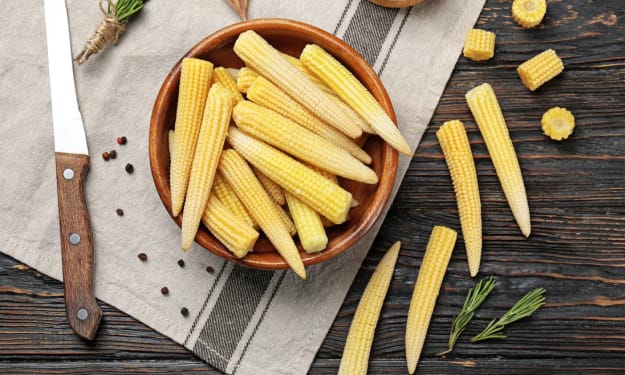Tips, what to eat, and health advantages of a plant-based diet
This is for you!

A plant-based diet typically consists of nourishing, nutrient-dense foods that are naturally low in fat and high in fiber, which are also healthy for the heart, brain, and waistline.
Veganism forgoes all animal products, although plant-based eating does not. Instead, they emphasize consuming primarily plant-based foods including fruits, vegetables, wholegrains, nuts, and seeds.
As more people adopt plant-based diets, it's understandable given some of the health advantages. A review of studies indicated that giving up meat could prevent, control, and even reverse many chronic illnesses, including heart disease, type 2 diabetes, and some malignancies. The review was published in the Journal of Geriatric Cardiology(opens in new tab).
However, a study published in Neurosciences found that individuals who forgo meat, seafood, and dairy products can occasionally be deficient in vitamin B12, which in severe situations can result in neurological impairment (opens in new tab).In order to learn more about the plant-based diet, including what to eat, potential health benefits, and other topics, we spoke with registered dietitians Sophie Medlin and Nigel Denby.
WHAT IS A PLANT-BASED DIET?
A diet that is entirely plant-based excludes any foods with elements originating from animals. Vegetables, entire grains, legumes, nuts, seeds, and fruits are typical examples of this.
Being vegan, which is the avoidance of all foods and byproducts from animals, is different from this. Additionally, strict vegans may decide to abstain from using wool, silk, beeswax, leather, and fur.
WHAT ARE THE POTENTIAL BENEFITS OF A PLANT-BASED DIET?
better kidney function and decreased risk of type 2 diabetes
According to results from the Singapore Chinese Health Study, eating red meat and chicken has been associated with an elevated risk of diabetes, in part due to the high proportion of heme iron in those foods (opens in new tab).
lowered pain from arthritis
The evidence is conflicting, according to Medlin, as some studies(opens in new tab) have been able to demonstrate decreased inflammation while following a plant-based diet. However, vegan and vegetarian diets may include a higher risk of B12 and other vitamin deficiencies, which can have a deleterious impact on arthritis.
Since vegetables have anti-inflammatory effects on the body, increasing your intake of them is undoubtedly a good idea if you have arthritis. It's not necessary to stop eating animal products in order to eat more plants.
keeps the mind active
A plant-based diet has many physiological advantages, but there may also be some potential psychological ones. Researchers from Boston University School of Medicine discovered that by increasing your intake of plant-based foods like berries and green leafy vegetables while reducing your intake of animal products and foods high in saturated fat, you can slow the progression of heart failure and subsequently reduce your risk of dementia and cognitive decline.
improved cardiac health
According to Denby, plant-based diets often contain less saturated fat and more unsaturated fat and fiber, which is beneficial for heart health and lowers the risk of developing cardiovascular disease, obesity, and type 2 diabetes.
'Bad' cholesterol levels that are lower
Numerous studies have demonstrated the beneficial effects of plant-based diets on cholesterol levels, particularly a vegetarian or vegan diet mixed with nuts, soy, and fiber.
According to Denby, eating a plant-based diet has been linked to lower levels of LDL cholesterol, sometimes known as our "bad cholesterol." "Atherosclerosis, or the accumulation of fatty plaques in our blood arteries, is promoted by LDL cholesterol. LDL cholesterol thus raises the danger of cardiovascular disease. Therefore, having lower LDL cholesterol lowers your risk of developing cardiovascular disease.
However, Medlin cautions that plant-based diets do not all have the same benefits. Although this isn't always the case, especially as people rely more and more on processed plant-based foods, she asserts that diets high in plants tend to be lower in saturated fats.
better intestinal health
It has been demonstrated that vegetarian and vegan diets encourage a balanced mix of good bacteria that benefits gut and general health.
It can be considerably simpler to consume the recommended 30g of dietary fiber per day on a plant-based diet, which will benefit your gut health.
According to Denby, there are many bacteria in your gut that feed on fiber, specifically prebiotics, and make good short chain fatty acids that promote human health, including hunger management.
A plant-based diet may lead to a more diversified and stable microbiome, according to a study published in Frontiers in Nutrition(opens in new tab), but more research is required in this area, according to Medlin. A plant-based diet should comprise a variety of plants every day because this will help our microbial health and, in turn, our gut health.
Healthy weight
According to Denby, a high-fiber plant-based diet will also lengthen feelings of satiety since fiber takes time to digest. This might help some people who are trying to control their weight since it might make them eat less frequently, which would mean consuming less calories. Plant-based diets have been linked in some studies(opens in new tab) to lower BMIs.
According to a study published in Journal List(opens in new tab), among more than 10,000 adults on various diets, those who followed a plant-based diet consumed much less calories, total fat, and saturated fat than those who did not.
According to Medlin, "generally speaking, vegans tend to have lower BMIs than omnivores." The BMI difference is probably going to disappear as processed vegan cuisine becomes more prevalent. Because they consume significantly more carbohydrates than they did on an omnivore diet, some people gain weight when following a vegan diet. Others who follow a vegan diet will lose weight because they avoid eating a lot of fast food, processed meat, and pastries. We are all unique.
Check out our plant-based diet for beginners and our plant-based meal plan if you're looking to switch to a more plant-based diet.
Additionally, research has shown that plant-based diets may help lower the risk of type 2 diabetes and cardiovascular disease, although this is dependent on the quality of your diet.
According to Denby, a plant-based diet high in saturated fat will nonetheless raise your risk of developing the mentioned medical disorders. "At the end of the day, whether they come from plants or animals, the nutrients you consume still matter."
According to a comprehensive review that was published in the Nutrients journal(opens in new tab), vegetarian and vegan diets lower blood pressure compared to omnivorous diets. These researchers hypothesized that this impact may be related to the diets' higher intakes of fiber and antioxidants as well as lower intakes of saturated fat.
WHAT CAN YOU EAT ON A PLANT-BASED DIET?
Medlin claims that the word "plant-based" frequently refers to a wide variety of fruits, vegetables, legumes, and whole grains. Dairy and meat are acceptable because being totally vegetarian or vegan is not implied.
According to Medlin, "We typically think of a plant-based diet as being largely vegetables with animal products being a smaller component, for example, a salad with a small quantity of chicken or an egg." Vegans and strict vegetarians, respectively, refrain from consuming any goods that are derived from animals.
Since the word "plant-based" hasn't been defined, there are no rigid standards, according to Medlin. "It's crucial to keep in mind that sugar, chips, and other less healthful meals are also plant-based, therefore they do not constitute 'healthy. In general, it is acknowledged that a plant-based diet comprises fewer animal products than a typical diet, however according to official recommendations, a plant-based diet is a "normal" healthy diet.
ARE THERE ANY RISKS OF A PLANT-BASED DIET?
According to Denby, it is entirely possible to follow a thoroughly thought-out plant-based diet and obtain all the necessary elements.
However, when a plant-based diet is poorly planned, there is a risk of micronutrient shortages, he claims. "When switching to a plant-based diet, it may be necessary to spend extra time planning meals to make sure you obtain all the nutrients you need.
If a person doesn't routinely consume dairy, they should look for a milk substitute that has been fortified with calcium, iodine, vitamin D, and vitamin B12.
If a person doesn't like oily fish, they can still get their omega-3s via walnuts, linseeds, or rapeseed oil. As an alternative, a supplement made from microalgae will provide enough omega-3 intake.
Denby advises including beans, lentils, nuts, dried fruit, and iron-fortified morning cereals in your diet to ensure you get adequate iron. Selenium is also frequently ignored, yet eating just two to three Brazil nuts a day will provide you all the selenium you need for the day.
Typically, foods derived from animals, such as meat, fish, dairy products, and eggs, include vitamin B12. But plant-based alternatives including nutritional yeast, yeast spreads, and breakfast cereals enriched with B12 are also available.
On a plant-based diet, "someone is more susceptible to nutrient deficiencies if they are rigid with the things they eat and don't include variety," claims Denby. Variety makes sure you get a variety of nutrients. Additionally, it's crucial to switch out a product that is absent from your diet, like milk, with one that contains the same nutrients, like fortified dairy alternatives.
About the Creator
Enjoyed the story? Support the Creator.
Subscribe for free to receive all their stories in your feed. You could also pledge your support or give them a one-off tip, letting them know you appreciate their work.





Comments
There are no comments for this story
Be the first to respond and start the conversation.